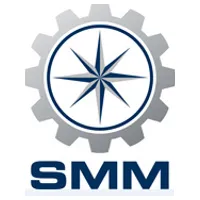
Latest NEWS
Charting the Course of Maritime Innovation: Exploring the Top 5 Key Trends at SMM Hamburg 2024

Green Shipping and Sustainability Initiatives at SMM Hamburg 2024

One of the key trends in green shipping is the adoption of alternative fuels and propulsion systems. Traditional fossil fuels, such as heavy fuel oil, are major contributors to greenhouse gas emissions and air pollution. To address this issue, many shipping companies are exploring alternative fuels like liquefied natural gas (LNG), biofuels, and hydrogen. These fuels produce fewer emissions and can help reduce the industry’s carbon footprint. Additionally, there is a growing interest in electric and hybrid propulsion systems, which offer even greater environmental benefits.
Another important trend in green shipping is the development of energy-efficient ship designs. Shipbuilders are incorporating innovative technologies and design features that optimize fuel consumption and reduce emissions. For example, hull designs that minimize drag and improve hydrodynamics can significantly improve a vessel’s fuel efficiency. Additionally, the use of lightweight materials and advanced insulation techniques can reduce energy consumption for heating and cooling onboard.
The integration of renewable energy sources is also gaining traction in the maritime industry. Solar panels, wind turbines, and even wave energy converters are being installed on ships to harness clean energy and reduce reliance on fossil fuels. These renewable energy systems can power auxiliary systems onboard, such as lighting, navigation equipment, and communication devices, further reducing the vessel’s environmental impact.
In addition to technological advancements, green shipping initiatives also focus on improving operational efficiency and optimizing logistics. Digitalization and data analytics play a crucial role in this regard. By collecting and analyzing real-time data, shipping companies can identify areas of inefficiency and implement measures to optimize fuel consumption, route planning, and cargo handling. This not only reduces emissions but also improves overall operational performance and cost-effectiveness.
Lastly, sustainability initiatives at SMM Hamburg 2024 highlighted the importance of collaboration and knowledge sharing within the maritime industry. Stakeholders from different sectors, including shipowners, shipbuilders, technology providers, and regulatory bodies, came together to discuss and exchange ideas on sustainable practices. This collaborative approach is essential for driving innovation and implementing effective solutions that address the industry’s environmental challenges.
In conclusion, green shipping and sustainability initiatives were at the forefront of discussions at SMM Hamburg 2024. The industry is actively exploring alternative fuels, energy-efficient designs, renewable energy integration, operational optimization, and collaboration to chart a course towards a more sustainable future. These trends not only contribute to reducing the maritime industry’s environmental impact but also pave the way for a more efficient and economically viable sector. As the industry continues to evolve, it is crucial for stakeholders to stay informed and embrace these key trends to ensure a greener and more sustainable maritime industry.
Digitalization and Automation in the Maritime Industry at SMM Hamburg 2024
Digitalization and Automation in the Maritime Industry at SMM Hamburg 2024
The maritime industry has always been at the forefront of innovation, constantly seeking ways to improve efficiency and safety. As we look ahead to SMM Hamburg 2024, one of the world’s leading maritime trade fairs, it is clear that digitalization and automation will be key trends shaping the future of the industry.
Digitalization has already made significant strides in the maritime sector, with the adoption of technologies such as electronic navigation systems and remote monitoring. However, SMM Hamburg 2024 will showcase the next wave of digital innovations that promise to revolutionize the industry.
One of the key areas of focus will be the use of artificial intelligence (AI) and machine learning in maritime operations. AI-powered systems can analyze vast amounts of data in real-time, enabling ships to make more informed decisions and optimize their performance. From predicting maintenance needs to optimizing fuel consumption, AI has the potential to transform the way ships operate.
Another exciting development in digitalization is the use of blockchain technology in the maritime industry. Blockchain, a decentralized and transparent ledger system, can enhance security and efficiency in areas such as supply chain management and cargo tracking. By providing a tamper-proof record of transactions, blockchain can reduce fraud and streamline processes, ultimately benefiting all stakeholders in the maritime ecosystem.
Automation is another key trend that will be explored at SMM Hamburg 2024. The use of autonomous vessels, for example, has the potential to revolutionize shipping by reducing human error and increasing efficiency. These unmanned ships can navigate through complex routes and adapt to changing conditions, all while minimizing the risk to human life.
In addition to autonomous vessels, automation will also play a significant role in port operations. Automated cranes and cargo handling systems can improve productivity and reduce the time it takes to load and unload ships. This not only increases efficiency but also reduces costs and minimizes the environmental impact of maritime operations.
However, with the rise of digitalization and automation comes the need for a skilled workforce that can effectively operate and maintain these technologies. SMM Hamburg 2024 will also focus on the importance of training and education in preparing the maritime industry for the future. From specialized courses on AI and blockchain to hands-on training with autonomous systems, the trade fair will provide a platform for industry professionals to learn and exchange knowledge.
In conclusion, digitalization and automation are set to transform the maritime industry, and SMM Hamburg 2024 will be a showcase of the latest trends and innovations in these areas. From AI-powered systems to blockchain technology, the trade fair will highlight the potential of these technologies to improve efficiency, safety, and sustainability in the maritime sector. However, it is crucial to recognize the importance of training and education in preparing the industry for this digital revolution. By equipping the workforce with the necessary skills, the maritime industry can chart a course towards a more innovative and prosperous future.
Offshore Wind Energy and Renewable Solutions at SMM Hamburg 2024
Offshore wind energy has emerged as a key player in the global push for renewable solutions. As the world grapples with the urgent need to reduce carbon emissions and combat climate change, the maritime industry has been at the forefront of developing innovative technologies to harness the power of wind at sea. At SMM Hamburg 2024, one of the world’s leading maritime trade fairs, the focus on offshore wind energy and renewable solutions is set to take center stage. In this article, we will explore the top five key trends in this sector that are expected to shape the future of maritime innovation.
First and foremost, the advancement of floating offshore wind farms is a trend that cannot be ignored. Traditionally, offshore wind farms have been fixed to the seabed, limiting their deployment to shallow waters. However, floating wind farms have the potential to tap into deeper waters, opening up vast areas for wind energy generation. This technology has been gaining traction in recent years, and at SMM Hamburg 2024, we can expect to see further developments and discussions on the feasibility and scalability of floating offshore wind farms.
Secondly, the integration of energy storage solutions with offshore wind farms is another key trend to watch. As the intermittent nature of wind energy poses challenges for grid stability, energy storage systems can play a crucial role in balancing supply and demand. By storing excess energy during periods of high wind generation and releasing it during low wind periods, these systems can ensure a steady and reliable power supply. SMM Hamburg 2024 will provide a platform for industry experts to showcase the latest advancements in energy storage technologies and explore their integration with offshore wind farms.
Furthermore, digitalization and automation are set to revolutionize the offshore wind industry. From autonomous maintenance robots to advanced data analytics, digital technologies have the potential to optimize operations, improve safety, and reduce costs. At SMM Hamburg 2024, attendees can expect to witness demonstrations of cutting-edge digital solutions that enable real-time monitoring, predictive maintenance, and efficient asset management. The integration of these technologies will not only enhance the performance of offshore wind farms but also contribute to the overall sustainability of the maritime industry.
In addition, the development of hybrid energy systems is gaining momentum in the offshore wind sector. By combining wind energy with other renewable sources such as solar or wave power, these systems can maximize energy production and minimize reliance on fossil fuels. SMM Hamburg 2024 will provide a platform for industry players to showcase their hybrid energy solutions and discuss the potential for collaboration and integration across different renewable sectors. The development of these systems will not only contribute to a more sustainable energy mix but also create new business opportunities for the maritime industry.
Last but not least, the focus on circular economy principles in the offshore wind sector is a trend that cannot be overlooked. As the industry continues to grow, there is a need to address the environmental impact of wind farm installations and decommissioning. By adopting circular economy principles, such as recycling and reusing materials, the offshore wind industry can minimize waste and reduce its carbon footprint. At SMM Hamburg 2024, attendees can expect to see innovative solutions and best practices that promote a circular economy approach in the offshore wind sector.
In conclusion, the offshore wind energy and renewable solutions sector at SMM Hamburg 2024 promises to be a hub of innovation and collaboration. From floating offshore wind farms to energy storage systems, digitalization to hybrid energy solutions, and circular economy principles, the top five key trends in this sector are set to chart the course of maritime innovation. As the world strives for a sustainable future, the maritime industry continues to play a pivotal role in driving the transition towards renewable energy sources. SMM Hamburg 2024 will undoubtedly be a milestone event that showcases the latest advancements and fosters partnerships to accelerate the growth of offshore wind energy and renewable solutions.
Maritime Cybersecurity and Data Protection at SMM Hamburg 2024
Maritime Cybersecurity and Data Protection at SMM Hamburg 2024
As the maritime industry continues to embrace digitalization and automation, the importance of cybersecurity and data protection becomes increasingly critical. The SMM Hamburg 2024 conference recognizes this and dedicates a section to exploring the latest trends and advancements in maritime cybersecurity and data protection.
One of the key trends in this field is the growing threat of cyber attacks on maritime infrastructure. With ships becoming more connected and reliant on digital systems, they are vulnerable to cyber threats that can disrupt operations, compromise sensitive data, and even pose risks to crew safety. As a result, maritime companies are investing in robust cybersecurity measures to protect their assets and ensure the integrity of their operations.
Another trend is the adoption of advanced technologies to enhance cybersecurity in the maritime industry. Artificial intelligence (AI) and machine learning (ML) algorithms are being employed to detect and respond to cyber threats in real-time. These technologies can analyze vast amounts of data, identify patterns, and detect anomalies that may indicate a potential cyber attack. By leveraging AI and ML, maritime companies can proactively defend against cyber threats and minimize the impact of any potential breaches.
Data protection is also a key concern in the maritime industry. With the increasing amount of data being generated and shared, ensuring its confidentiality, integrity, and availability is paramount. Encryption technologies are being widely adopted to protect sensitive data from unauthorized access. Additionally, secure data storage and transmission protocols are being implemented to safeguard data throughout its lifecycle.
The rise of the Internet of Things (IoT) in the maritime industry presents both opportunities and challenges for cybersecurity and data protection. IoT devices, such as sensors and connected machinery, enable real-time monitoring and optimization of ship operations. However, these devices also increase the attack surface for cybercriminals. Maritime companies are therefore focusing on securing IoT devices and networks to prevent unauthorized access and potential data breaches.
Collaboration and information sharing are crucial in addressing the evolving cybersecurity landscape in the maritime industry. The SMM Hamburg 2024 conference provides a platform for industry stakeholders to come together and exchange knowledge, best practices, and insights on cybersecurity and data protection. By sharing experiences and lessons learned, maritime companies can collectively strengthen their defenses against cyber threats and stay ahead of emerging risks.
In conclusion, maritime cybersecurity and data protection are of utmost importance in today’s digitalized maritime industry. The SMM Hamburg 2024 conference recognizes this and offers a dedicated section to explore the latest trends and advancements in this field. From the growing threat of cyber attacks to the adoption of advanced technologies, the maritime industry is actively investing in robust cybersecurity measures. Data protection, the rise of IoT, and collaboration among industry stakeholders are also key areas of focus. By staying informed and proactive, maritime companies can navigate the complex cybersecurity landscape and ensure the safety and security of their operations.
Autonomous Vessels and Maritime Robotics at SMM Hamburg 2024
The maritime industry has always been at the forefront of innovation, constantly seeking new ways to improve efficiency, safety, and sustainability. One of the most exciting developments in recent years has been the rise of autonomous vessels and maritime robotics. These cutting-edge technologies are set to revolutionize the way we think about maritime operations, and they were a major focus at the SMM Hamburg 2024 conference.
Autonomous vessels, also known as unmanned surface vessels (USVs), are ships that can operate without a crew on board. They are equipped with advanced sensors, navigation systems, and artificial intelligence (AI) algorithms that allow them to navigate and make decisions autonomously. This technology has the potential to greatly reduce the risk of human error and improve safety at sea.
At SMM Hamburg 2024, several companies showcased their latest advancements in autonomous vessels. One of the key trends was the development of autonomous cargo ships. These unmanned ships have the potential to revolutionize the shipping industry by reducing costs and increasing efficiency. They can operate 24/7 without the need for rest periods, and they can optimize their routes to minimize fuel consumption and emissions.
Another exciting development in the field of autonomous vessels is the use of drones for maritime surveillance and inspection. These unmanned aerial vehicles (UAVs) can be deployed from a ship to gather real-time data on the surrounding area. They can monitor for illegal activities, such as piracy or smuggling, and they can also inspect offshore structures, such as oil rigs or wind farms, for damage or maintenance needs. This technology has the potential to greatly improve the efficiency and effectiveness of maritime security and maintenance operations.
In addition to autonomous vessels, maritime robotics was another key trend at SMM Hamburg 2024. Maritime robots are unmanned underwater vehicles (UUVs) that can perform a wide range of tasks, from underwater exploration to underwater construction. These robots are equipped with advanced sensors and manipulators that allow them to navigate and interact with their environment. They can be used for underwater mapping, pipeline inspection, and even deep-sea exploration.
One of the most exciting applications of maritime robotics is in the field of underwater archaeology. These robots can explore shipwrecks and underwater archaeological sites, gathering valuable data without disturbing the delicate ecosystem. They can also assist in the recovery of artifacts and the preservation of underwater cultural heritage.
Another area where maritime robotics is making a significant impact is in the field of offshore energy. These robots can be used to inspect and maintain offshore wind turbines and oil rigs, reducing the need for human divers and improving safety. They can also be used for underwater pipeline inspection and repair, ensuring the integrity of critical infrastructure.
In conclusion, autonomous vessels and maritime robotics are set to revolutionize the maritime industry. The advancements showcased at SMM Hamburg 2024 demonstrate the potential of these technologies to improve efficiency, safety, and sustainability. From autonomous cargo ships to underwater archaeology robots, the future of maritime operations is looking increasingly autonomous and robotic. As these technologies continue to evolve, it is clear that the maritime industry is charting a new course towards a more innovative and technologically advanced future.



